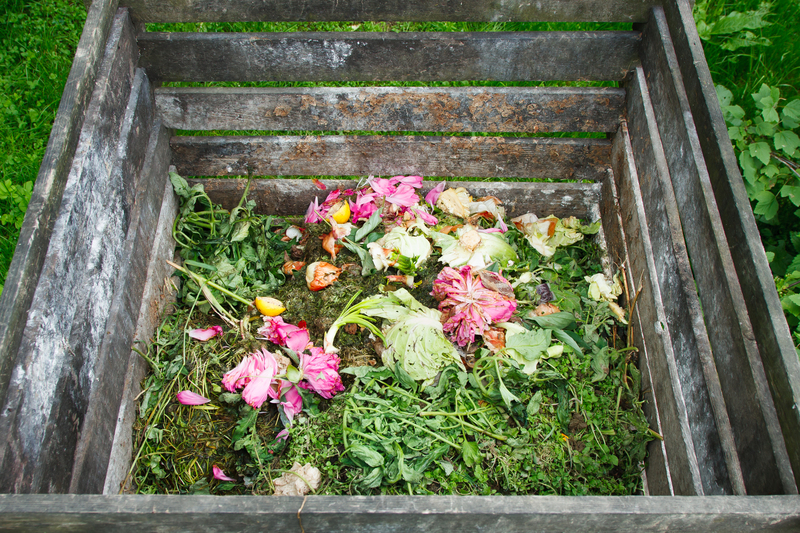Conquer Skip Hire Challenges with Dos and Don'ts
Are you planning a home renovation, landscaping project, or a general clear-out? Renting a skip can make waste management simple and efficient--if you know how to conquer skip hire challenges with the proper approach. Whether you're a first-timer or you've used skip bins before, understanding the dos and don'ts of skip rental is essential to avoid costly mistakes, legal problems, or logistical headaches.
In this guide, discover skip hire best practices that will streamline your experience, save money, and protect the environment. Here's your comprehensive, SEO-friendly primer on mastering the perils and pitfalls of skip hire with clear dos and don'ts.

Understanding Skip Hire: Why It Matters
Skip hire (also referred to as skip bin hire or waste container rental) gives households and businesses a simple solution for bulk waste disposal. The right skip size, placement, contents, and collection timing are crucial to ensure safety, compliance with laws, and conveyances that don't disrupt your plans.
With increased regulations and landfill fees, skip hire can present a variety of challenges. That's why knowing how to avoid common errors and adopt practical strategies will save you both time and funds.
What Are the Common Skip Hire Challenges?
- Choosing the wrong skip size - leading to insufficient space or unnecessary expense.
- Overloading skips -- risking safety issues and penalties from providers.
- Failing to comply with local laws or permits, especially for skips placed on public land.
- Placing prohibited items in the skip, risking fines or refusal of collection.
- Poor access for delivery or collection trucks.
Let's dive deeper into the dos and don'ts that will help you overcome these skip hire challenges with ease.
Dos: Proven Ways to Make Skip Hire Seamless
Do Assess Your Waste Accurately
Before you book a skip, take stock of what you need to dispose of. Estimate the volume and types of waste. It's better to have a slightly larger skip than to run short of space, as overfilled skips are dangerous and often incur extra charges or collection refusal.
- Tip: Pile up your waste to gauge how much space it might take.
- Consult your skip hire company for help with skip size selection.
- Common sizes: Mini skips (2-3 yards), midi skips (4-5 yards), builder's skips (6-8 yards), and large skips (12-16 yards or more).
Do Understand Local Regulations and Permit Requirements
If your skip will be placed on a public road, a skip permit from your local authority may be required. Skipping this step can result in hefty fines and unwanted delays. Even on private land, check local rules, as certain restrictions apply regarding hazardous waste, parking, or property access.
- Contact your council or skip hire provider about permit needs and restrictions.
- Place clear signage or lights on skips located on public land to comply with safety rules.
Do Separate and Prepare Your Waste Properly
Not all waste belongs in a skip. Create different piles for materials such as garden waste, general household rubbish, construction debris, and recyclable items. Sorting in advance reduces the risk of placing prohibited materials in the bin and supports eco-friendly waste solutions.
- Consult your provider's list of accepted and prohibited items.
- Keep hazardous waste--such as asbestos, paint, tyres, and electrical goods--out of your skip.
- Break down bulky items to maximise skip space.
Do Choose a Trustworthy Skip Hire Company
All skip hire companies are not created equal. Select a reputable and licensed provider to ensure legal and responsible disposal of your waste. Read customer reviews, ask about recycling rates, and compare pricing to avoid unexpected charges.
- Ask for proof of licensing and insurance.
- Inquire about recycling and landfill diversion practices.
Do Plan for Easy Skip Access
Ensure your chosen spot is accessible for drop-off and pick-up. Remember, skip lorries are large and need ample room to manoeuvre. Clear overhanging branches, cars, or obstacles that could hamper collection.
- Place skips on flat, solid ground to prevent tilting or spillage.
- Allow at least 3 metres of clearance in front of the skip for collection vehicles.
Do Respect Collection Schedules
Book your skip for the required period and inform your provider as soon as you're finished. Overrunning your booking can incur daily hire charges or inconvenience subsequent users.
- Extensions are possible--just communicate in advance.
- Return skips early to save on unneeded extra hire days.
Don'ts: Common Skip Hire Mistakes to Avoid
Don't Overfill Your Skip
Exceeding the "load level" or "fill line" poses a safety risk during transport, risks fines, and may cause your skip to be rejected for collection. The maximum fill line is a strict legal limit--never ignore it!
- Even slightly overfilling is enough for providers to refuse pick-up.
- Consider hiring a larger skip if there's a chance you'll exceed capacity.
Don't Place Prohibited Items in Your Skip
Every skip hire company has a list of forbidden materials due to safety, legal, and environmental reasons. Common banned items include:
- Asbestos and chemicals
- Paints, solvents, and oils
- Batteries and electrical appliances
- Tyres and gas canisters
- Medical or clinical waste
Deposit of these items can result in significant fines, prosecution, or refusal to collect your skip. Always check the provider's guidelines or ask if unsure.
Don't Block Access or Exits
Poor placement of your skip can obstruct driveways, roads, footpaths, or even emergency exits. This could earn you community complaints or enforcement action.
- Never block public infrastructure--respect the rights of neighbours and the local community.
- Choose a location that allows free passage for everyone.
Don't Delay Communication with Your Provider
If your project plans change, notify your skip company promptly. Last-minute rescheduling or permit changes are often more expensive, so keeping your provider informed is crucial.
- Request changes in collection or delivery dates as early as possible.
- Clarify terms and conditions, including costs for delays or extra time.
Don't Ignore Environmental Best Practices
Many people assume hiring a skip means all waste will simply go to landfill. That's not the case. Responsible skip hire firms prioritise recycling and landfill diversion, but you play a part by avoiding contamination and sorting recyclables.
- Don't throw recyclable paper, cardboard, or metals in with general waste unless told otherwise.
- Follow local green waste requirements if disposing of garden matter.
Expert Tips to Conquer Skip Hire Challenges Like a Pro
Effective Waste Sorting and Loading
- Start with flat items: Lay flat materials (wood, metal sheeting, doors) at the base to increase stability and create a uniform base.
- Break up and flatten bulky items to maximise space utilization.
- Distribute heavy items evenly to avoid a top-heavy skip.
- Fill gaps with smaller debris and bags, but don't compact waste by force, as this creates hazards.
Avoiding Hidden Charges
- Ask for a total price breakdown before booking: skip size, permit, delivery, and collection fees.
- Discuss weight limits and potential excess fees.
- Confirm the hire duration and charges for extra days or failed collection attempts.
Legal Compliance
- Check if you need a public liability insurance certificate for skips on public land.
- Secure council permits well in advance.
- Never move the skip after delivery--this may breach permit or safety conditions.
Neighbour and Community Etiquette
- Notify neighbours of skip delivery dates to prevent disputes or parking issues.
- Clean up any debris or spills resulting from your loading activity promptly.
- Don't allow others to fill your skip with their waste unless agreed to beforehand.

Frequently Asked Questions About Skip Hire
What Size Skip Should I Hire?
Choosing the right skip size depends upon the volume and type of waste. For small domestic projects, a mini (2-3 yards) or midi (4-5 yards) skip is usually adequate. For major renovations or clear-outs, consider 6-8 yard builder's skips. It's better to overestimate slightly than be unable to fit all your waste.
How Long Can I Keep a Skip?
Standard hire periods range from 1 to 2 weeks, but this is flexible by arrangement. Always confirm with your provider, as extra days are often charged.
Do I Need a Permit for My Skip?
A permit is required if placing the skip on a public road, pavement, or verge. Your skip hire company can usually help arrange this through the council, but it may take a few days to process--so book ahead!
What Happens to My Waste?
After collection, skips are taken to licensed recycling or waste transfer facilities. Most reputable companies will recycle a high percentage of your waste and provide records if you request them.
Conclusion -- Master Skip Hire with the Right Dos and Don'ts
Skip hire is a valuable and convenient waste management tool, but only if approached with knowledge and care. To conquer skip hire challenges, focus on accurate waste estimation, adherence to regulations, choosing a reliable provider, and maintaining clear communication. By following the dos and avoiding the don'ts, you not only save money and ensure compliance, but also contribute positively to community and environmental goals.
Ready to tackle your next project? Use these skip hire best practice tips to streamline your experience and avoid costly or stressful mistakes. Consult your local, licensed skip hire company for further advice tailored to your unique requirements, and enjoy the satisfaction of efficient, responsible waste management.


